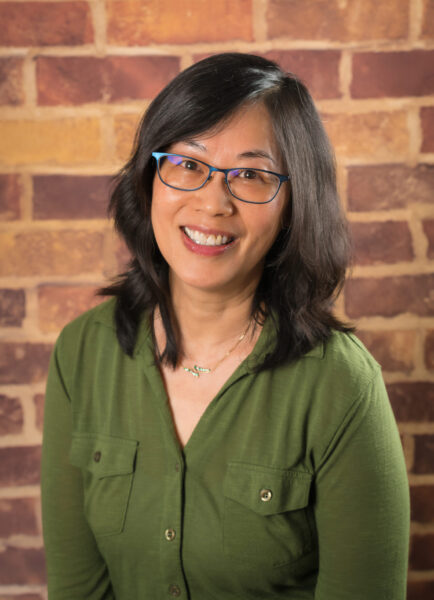In “The Tale We Told,” the reader glimpses into the experience of three generations living together. The scenes reveal a complex family dynamic with interleaving parent-child roles. What process led you to write the story in the first-person plural point of view?
Great question! I love experimenting with new forms, new POVs, and I’ve always found it challenging to write a story from the POV of a first-person plural because we don’t get to see an individual character with their complexity, desires, decision-making process, in essence, the ingredients that make a reader care for the character (and ultimately the story). I’ve written other first-person plural narratives in which, ultimately, one character had to come to the forefront to render the story more engaging to the reader, so I’ve tried and failed before. This is the one story I felt would do well with the first-person POV because it’s the children collectively who are trying to make sense of what’s happening in that household as the parents attempt to protect them from learning about a painful past. The first-person POV here does two things: contrast the divide between the children’s imagined magical world and the adults’ reality past and present, and intensify the underlying mystery and final reveal, which wouldn’t work as well if I had used a single first-person narrative.
The title hints at the malleability of a story, the stories we tell ourselves or others, ever evolving out of a multifactorial domain of proximity and time. You were born in Hong Kong, raised in Madagascar, and reside in Boston. As a writer of the diaspora, what are some of the recurrent themes in your writing?
I love how you described a story as “malleable,” because after all, aren’t events or facts always translated by us based on our perspectives, our past histories, our emotional baggage, and retold from these colored lenses? As part of the Chinese diaspora, I’m constantly reminded of the reasons why my parents left the mother country, their past histories surviving a war and the social/political upheaval of their time in China, being uprooted, searching for one’s identity, belonging, and navigating intergenerational relationships at the intersection of three different cultures. I believe Christopher Allen was the one who said “write what haunts you” in one of the SmokeLong Quarterly workshops. Themes such as intergenerational and intercultural conflicts, mother-daughter relationships, social subjects like foot binding and women’s place in Chinese culture are recurring topics in my writing.
As I read the story, the imagery never ceased to maintain the tone even as the mood shifted. With your background as a chemist, my mind jumped to conservation of matter, with how revision strives for continuity in a story even as the writing changes state. How precise was the initial draft of the story to its final form?
Wow, how insightful! I’ve never seen my writing as “conservation of matter,” but you might have put your finger on a truth I wasn’t even aware of myself, because I hardly ever do any substantial revisions to my stories. I know this sounds bad, because I’ve been told “revising is writing” and I’m not following that rule at all! I have some rare occasional bursts of creativity where a seed of a story starts in my mind, and I could follow its voice and complete the story. This story was born out of such moment in a historical fiction workshop led by Gwen E. Kirby, who offered some great feedback for revision that I took into account. For example, the shift of the children banging on the door and the ending was changed—the story ended originally at the line about the father telling the children he’s tearing up because of the onions—but the bulk of the story remained the same as the first draft, thus fitting nicely into your idea of “the conservation of matter.”
The story features characters whose behavior may come into question. Do you concern yourself with whether or not a character may be labeled as sympathetic or unsympathetic?
Great question again! I don’t think much about a character being labeled sympathetic or unsympathetic, but I do try hard to find their motivations behind their actions and feelings. I don’t feel that any of the characters in the story are unsympathetic, though the perception of “unsympathetic” may differ, depending on one’s cultural background. The parents could be seen as unsympathetic because they don’t try to understand why the children were acting up, and the father spanked them instead of explaining to them what’s going on, but their refusal to explain or talk about the painful past with their children hints at the generational trauma that pervades the story.
Who are you reading?
Gosh, that’s a tough question, I read stories by so many talented writers it’s unfair to not list them all, but that would be impossible, the list stretches too far for my memory. On top of my head, I’ve been reading Nathan Xie, K-Ming Chang, Tara Isabel Zambrano, Ted Chiang, Nancy Au, Yōko Ogawa, Meg Pokrass, novels by Brigit Pasulka, David Mitchell, Sarah Pinborough, to name a few that come to my mind.



 The core workshop of SmokeLong Fitness is all in writing, so you can take part from anywhere at anytime. We are excited about creating a supportive, consistent and structured environment for flash writers to work on their craft in a community. We are thrilled and proud to say that our workshop participants have won, placed, or been listed in every major flash competition. Community works.
The core workshop of SmokeLong Fitness is all in writing, so you can take part from anywhere at anytime. We are excited about creating a supportive, consistent and structured environment for flash writers to work on their craft in a community. We are thrilled and proud to say that our workshop participants have won, placed, or been listed in every major flash competition. Community works.